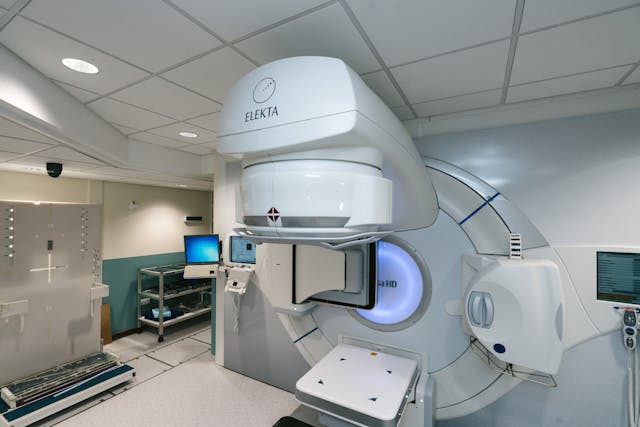CALL TODAY 646-933-3224 | EMAIL
Cancer Prevention and Early Detection: How Surgery Can Play a Life-Saving Role
What role does surgery play in cancer prevention and early detection? Cancer remains one of the leading causes of death worldwide, but advancements in medical science have significantly improved the ability to detect and treat it early. One of the most effective ways to combat cancer is through prevention and early detection, which can dramatically increase survival rates.
Surgery plays a crucial role in both preventing certain types of cancer and treating early-stage cancers before they spread. This guide will explore how surgery is used for cancer prevention, the importance of early detection, and how surgical interventions can be life-saving.

The Importance of Cancer Prevention
While some cancers develop due to genetic predisposition, many are preventable through lifestyle changes and proactive medical interventions. Taking steps to reduce risk factors and undergo regular screenings can significantly lower the likelihood of developing cancer.
Key Cancer Prevention Strategies
- Avoid Tobacco: Smoking is the leading cause of lung cancer and contributes to cancers of the throat, mouth, pancreas, and bladder. Avoiding tobacco significantly reduces cancer risk.
- Maintain a Healthy Diet: Eating a diet rich in fruits, vegetables, whole grains, and lean proteins while limiting processed foods and red meats can help lower cancer risk.
- Exercise Regularly: Engaging in physical activity helps maintain a healthy weight, reducing the risk of cancers like breast, colon, and endometrial cancer.
- Limit Alcohol Consumption: Excessive alcohol use increases the risk of cancers in the liver, breast, throat, and colon. Moderation is key.
- Protect Yourself from the Sun: Skin cancer, including melanoma, is often caused by excessive UV exposure. Wearing sunscreen and protective clothing can reduce the risk.
- Get Vaccinated: Certain cancers, such as cervical and liver cancer, are linked to viruses like HPV and hepatitis B. Vaccination can help prevent these infections.
- Undergo Regular Screenings: Detecting cancer in its early stages can save lives. Screenings like mammograms, Pap smears, colonoscopies, and prostate exams are critical.
How Surgery Plays a Role in Cancer Prevention
For individuals at high risk of developing cancer, surgery can be used as a preventive measure to remove tissue that has a high likelihood of becoming cancerous. This is known as prophylactic surgery or risk-reducing surgery.
Common Preventive Surgeries for Cancer
- Prophylactic Mastectomy: Women with a strong family history of breast cancer or BRCA gene mutations may choose to have their breasts removed to reduce their risk of developing cancer.
- Prophylactic Oophorectomy: The removal of the ovaries can help prevent ovarian cancer in women at high genetic risk.
- Colon Polyp Removal: In individuals with a history of polyps or familial adenomatous polyposis (FAP), removing polyps during a colonoscopy or performing a colectomy can prevent colorectal cancer.
- Thyroidectomy: For individuals with genetic predisposition to thyroid cancer, removing the thyroid before cancer develops can be a proactive strategy.
- Hysterectomy: Women with a high risk of uterine or cervical cancer may undergo a hysterectomy (removal of the uterus) to eliminate the risk.
The Role of Surgery in Early Cancer Detection
Early cancer detection allows for more effective treatment and a higher chance of survival. In some cases, surgical procedures are used to detect cancerous or pre-cancerous tissues.
Diagnostic Surgical Procedures
- Biopsy: A biopsy is a procedure where a small sample of tissue is removed and analyzed to check for cancerous cells. This is commonly used for breast lumps, suspicious skin lesions, and enlarged lymph nodes.
- Endoscopic Surgery: Using a flexible tube with a camera, surgeons can remove small tissue samples from the digestive tract, lungs, or bladder for examination.
- Lymph Node Dissection: In cases where cancer is suspected to have spread, nearby lymph nodes may be surgically removed and examined to determine the extent of the disease.

Surgical Treatment for Early-Stage Cancers
If cancer is detected at an early stage, surgery is often the primary treatment. Removing tumors before they have a chance to spread can significantly improve survival rates.
Common Surgeries for Early-Stage Cancer
- Lumpectomy: A lumpectomy removes a tumor while preserving the rest of the breast. This is an effective treatment for early-stage breast cancer.
- Colectomy: For colon cancer detected in its early stages, removing part or all of the colon may prevent the spread of cancerous cells.
- Prostatectomy: A prostatectomy removes the prostate gland in men diagnosed with localized prostate cancer.
- Partial or Total Nephrectomy: In early-stage kidney cancer, a nephrectomy removes part or all of the affected kidney to prevent further tumor growth.
- Skin Cancer Excision: Early-stage melanoma and other skin cancers can be surgically removed before they spread deeper into the skin layers.
Minimally Invasive Surgery for Cancer Treatment
Advancements in surgical technology now allow for minimally invasive procedures, reducing recovery time and improving patient outcomes. Many cancer surgeries can now be performed using laparoscopy or robotic-assisted surgery, which offer numerous benefits:
- Smaller incisions and reduced scarring
- Shorter hospital stays and faster recovery times
- Lower risk of infection and complications
- More precise removal of cancerous tissue with robotic-assisted surgery
Recovery and Post-Surgical Care
Following cancer surgery, patients may need additional treatments such as radiation therapy, chemotherapy, or immunotherapy to ensure all cancer cells are eliminated. Recovery varies depending on the type of procedure, but most patients can expect:
- Hospital stays ranging from a few days to a week, depending on the procedure
- Pain management with medication
- Follow-up appointments to monitor for any signs of recurrence
- Rehabilitation and physical therapy for certain types of cancer surgeries
- Emotional and psychological support, as cancer treatment can be both physically and mentally challenging
Cancer Prevention and Early Detection: Conclusion
Cancer prevention and early detection are essential in reducing cancer-related deaths. By making healthy lifestyle choices, undergoing regular screenings, and seeking medical advice when symptoms arise, individuals can take proactive steps in reducing their cancer risk. For those at high risk, preventive surgeries can provide peace of mind and significantly lower the chances of developing certain cancers.
If you or a loved one have concerns about cancer risk, early detection, or surgical treatment options, consulting with a qualified general surgeon can provide clarity and guidance. Early intervention saves lives.
For expert consultation and state-of-the-art surgical care in Manhattan, contact Lenox Hill Surgeons today to schedule an appointment.
Contact Information
LENOX HILL SURGEONS LLP
155 East 76th Street
Suite 1C
New York, NY 10021
646-933-3224
lenoxhillsurgeons@gmail.com
Visit our website for more information:
https://lenoxhillsurgeons.com/

